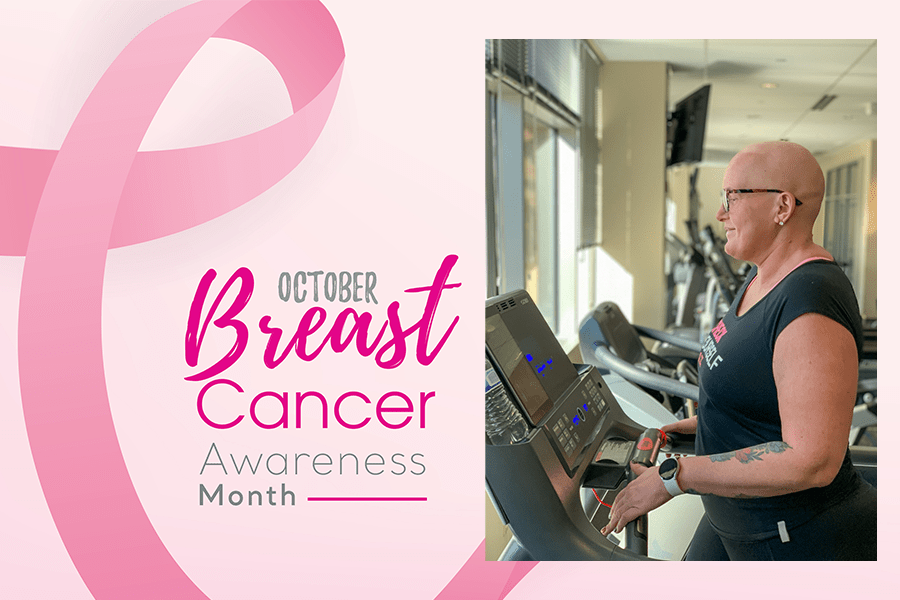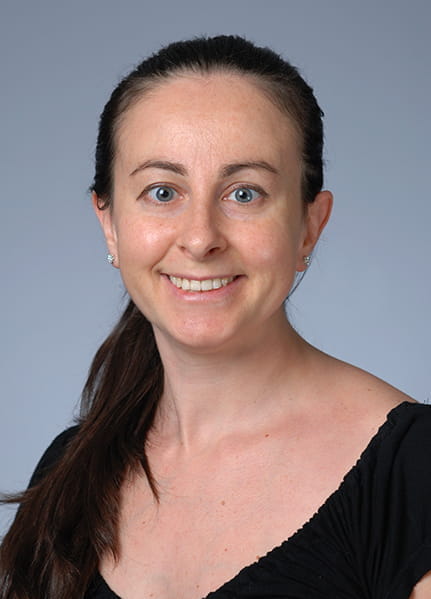Showing results for Breast Cancer Research
-
![a to-do list shows a handwritten note to schedule a mammogram]()
Mutations, mammograms and MRIs, oh my! How I took charge of my breast health with increased screenings, and when you should do the same
Christina Griffiths is a media relations specialist for Indiana University School of Medicine and has worked with the office of strategic communications for five years. ...
Christina Griffiths | Oct 25, 2023 -
![Jen Hedges exercises on the treadmill]()
MOVE program brightens outlook for breast cancer patients
The Multidisciplinary Oncology Vitality and Exercise (MOVE) Program, developed by oncologist Tarah Ballinger, MD, gives breast cancer patients a personalized plan for exercise and physical ...
Laura Gates | Oct 04, 2022 -
![Michelle Coté, PhD, at the Komen Tissue Bank]()
Q&A with Michele Coté, PhD
Michele Coté, PhD, is just getting started in her new role as the second director of the Susan G. Komen Tissue Bank at IU Simon ...
Candace Gwaltney | Sep 01, 2022 -
![38741-Hassanein, Al Al Hassanein, MD]()
Hassanein receives scientific research grant designed to overcome COVID disruptions
Research scientists and those with dependents were significantly impacted by COVID-19 – spending roughly 40 percent less time on studies. To address this challenge, the ...
Angie Antonopoulos | Apr 12, 2022 -
![Mateusz Opyrchal]()
-
![Lisa Hayes with community advocates]()
Black patients play key role in advancing breast cancer research
Community advocates are partnering with Indiana University School of Medicine to spread the word about the importance of including Black women in clinical research for ...
Laura Gates | Oct 25, 2021 -
![Jenny Brown at the Grand Canyon]()
'Whac-a-Mole' clinical trial participant experiences remission of Stage 4 triple negative breast cancer
Jenny Larner Brown dreams of a day when no one would ever hear their oncologist say, "We're out of options." It's now been more than ...
Laura Gates | Oct 19, 2021 -
![Natascia Marino, PhD]()
Dr. Marino, others demonstrate the importance of studying the “normal breast”
Natascia Marino, PhD, assistant research professor of medicine at IU School of Medicine and a research scientist with the Komen Tissue Bank at the IU ...
Michael Schug | Nov 10, 2020 -
![Kathy Miller and Harikrishna Nakshatri]()
Genomic medicine key to treating aggressive breast cancers disproportionately affecting African American women
Compared to white women, the lifetime risk of developing breast cancer is slightly lower for African Americans; however, the risk of dying from the disease ...
Laura Gates | Oct 09, 2020 -
![Ryan Higgins, PhD]()









